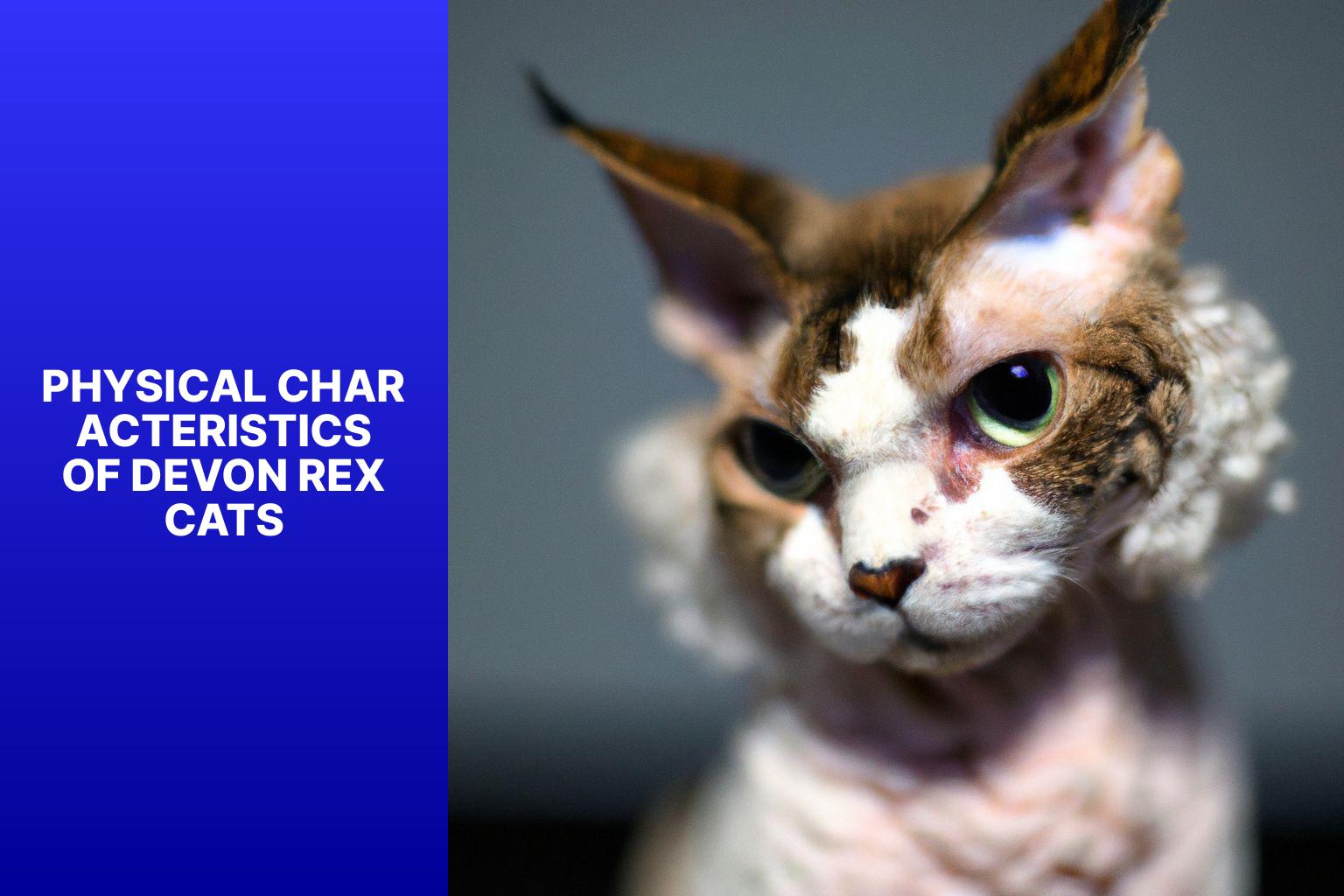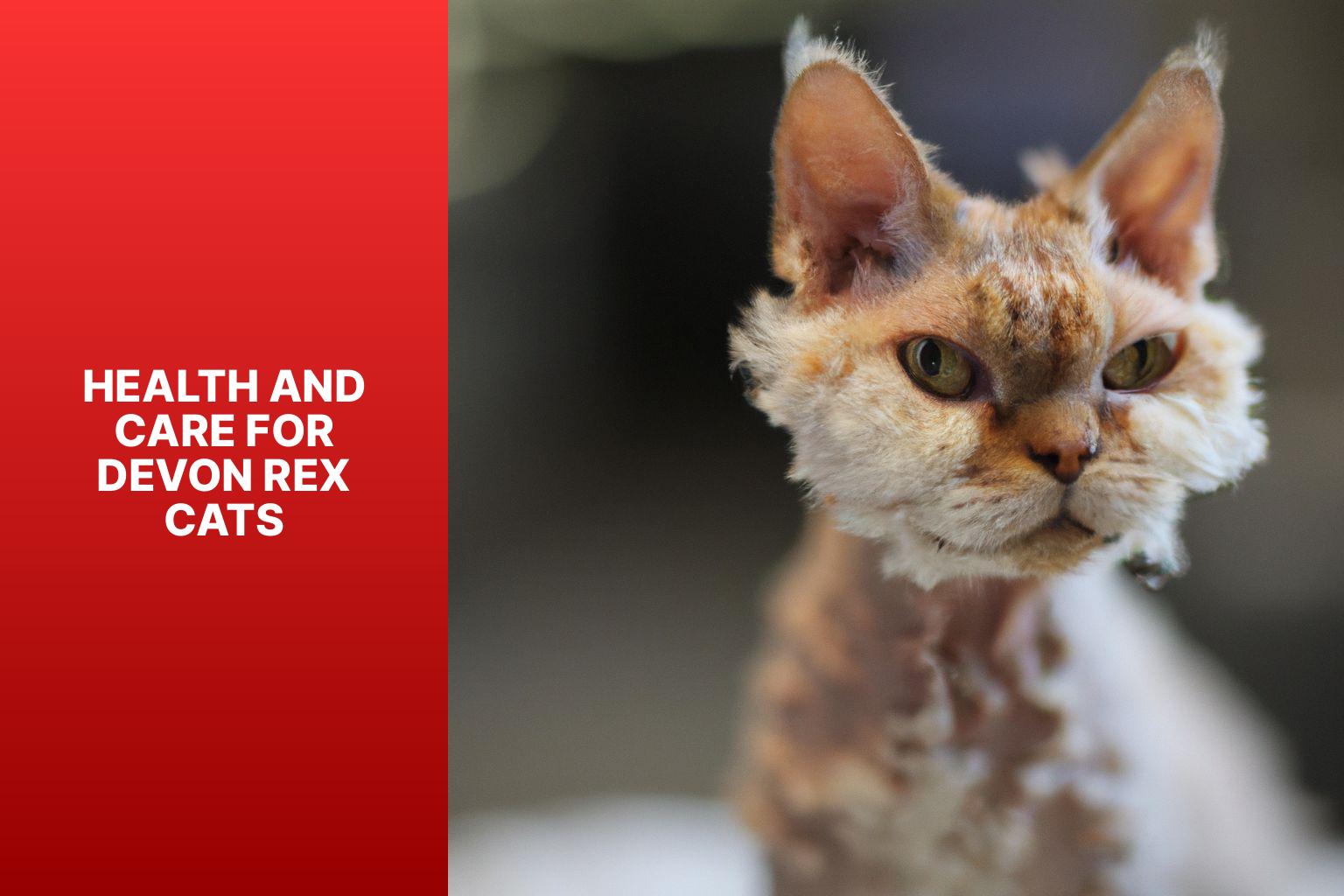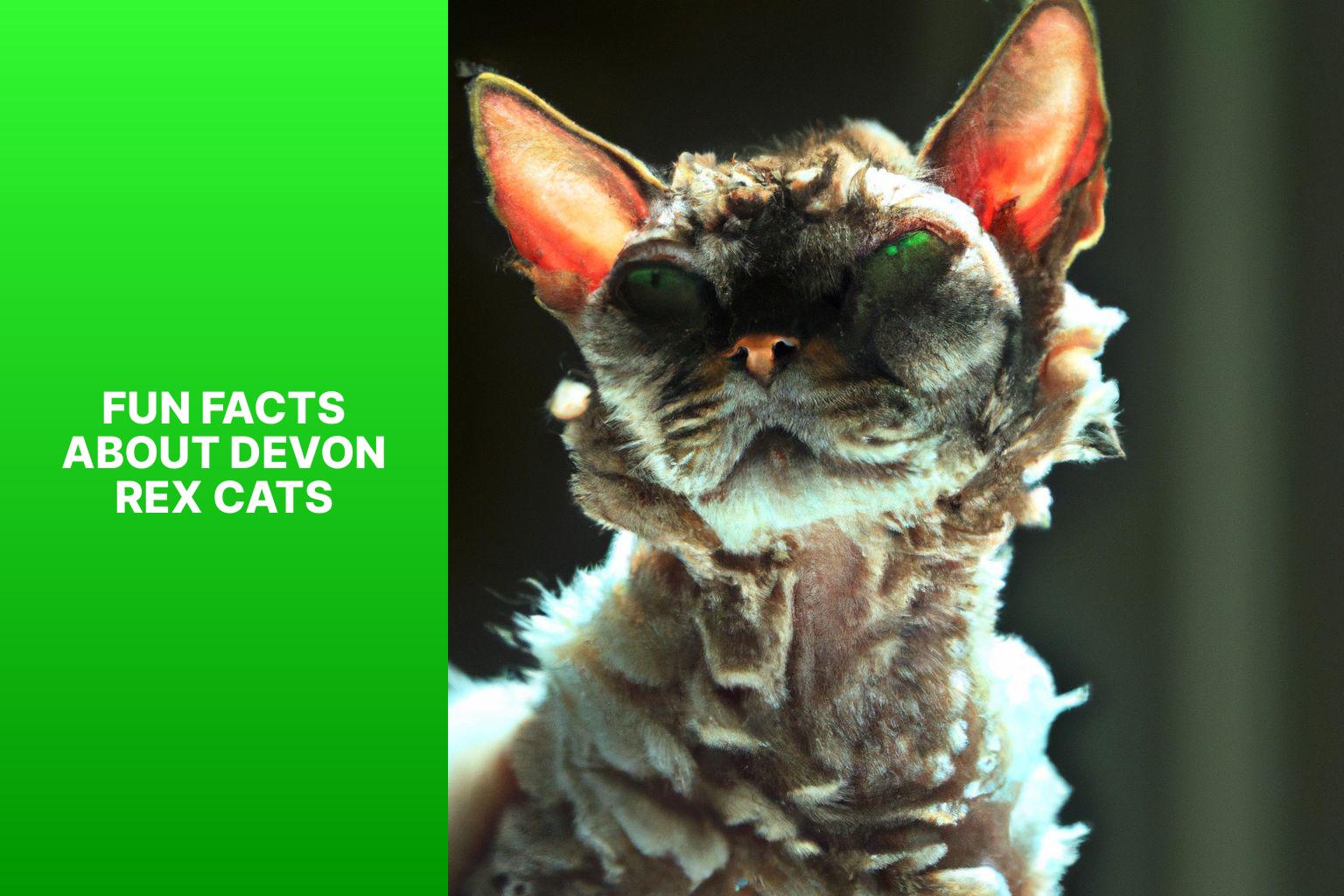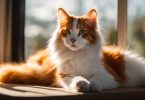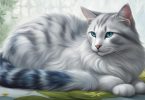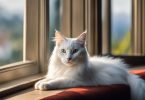Devon Rex cats are known for their unique physical characteristics and playful personalities. If you’re considering adopting a Devon Rex cat, it’s natural to wonder about their size. In this article, we will explore the physical characteristics of Devon Rex cats, their size range, and factors that affect their size.
Devon Rex cats have a distinctive coat and body size. Their coat is curly and soft, often described as a “rex coat.” This unique coat texture sets them apart from other cat breeds. In terms of body size, Devon Rex cats are generally considered to be small to medium-sized cats.
When it comes to how big Devon Rex cats can get, several factors come into play. Genetics play a significant role in determining a cat’s size, including their breed and lineage. factors such as diet, exercise, and overall health can influence a cat’s growth and development.
On average, adult Devon Rex cats typically weigh between 6 to 10 pounds (2.7 to 4.5 kilograms). It’s important to note that individual cats’ sizes can vary within this range.
When comparing Devon Rex cats to other breeds, they are generally smaller in size than some larger cat breeds like the Maine Coon or Ragdoll. Size can also vary within cat breeds, so it’s essential to consider individual cats’ characteristics rather than relying solely on breed standards.
Caring for a Devon Rex cat involves providing them with a nutritious diet tailored to their size and age. Regular exercise and playtime are important to keep them physically and mentally stimulated. grooming needs for Devon Rex cats are relatively low, thanks to their short, curly coat. Regular brushing and periodic baths are usually sufficient to maintain their coat’s health and appearance.
Key takeaway:
- Devon Rex cats have unique physical characteristics: They have a curly coat and a small to medium-sized body. Their distinctive appearance sets them apart from other cat breeds.
- The size of Devon Rex cats can vary: Factors like genetics, diet, and exercise can influence the size of a Devon Rex cat. On average, adult Devon Rex cats are smaller in size compared to some other cat breeds.
- Caring for a Devon Rex cat involves specific considerations: Their diet and nutrition, exercise and activity requirements, and grooming needs should be properly addressed to ensure their well-being.
Physical Characteristics of Devon Rex Cats
Photo Credits: Www.Catcornerblog.Com by Walter Torres
Unlocking the mysteries of Devon Rex cats, we delve into the captivating world of their physical characteristics. From their unique and luxurious coat to their compact and endearing body size, we’ll unravel the distinct features that make these feline wonders truly extraordinary. Buckle up for a fascinating journey where we uncover the secrets behind the coat and body of the enchanting Devon Rex cats.
Coat
The coat of a Devon Rex cat is characterized by its short, curly, and soft texture. It is truly one-of-a-kind and easily distinguishable. The short coat adds to the cat’s distinct appearance, while the curls are present throughout the body, including the tail and ears.
Notably, the coat is exceptionally plush to the touch, often compared to the texture of a stuffed toy. What sets the Devon Rex apart is the absence or scarcity of guard hairs, which are typically longer and stiffer in other cat breeds.
This unique coat has led to claims of hypoallergenic properties, making it an attractive option for individuals with allergies. The Devon Rex can exhibit a wide range of coat colors and patterns, including solids, tabbies, and even pointed colors similar to Siamese cats.
Despite its distinctive look, the Devon Rex’s coat is relatively low maintenance. Regular gentle brushing helps remove any loose hair or debris, and occasional bathing may be necessary to keep the coat clean.
The curly coat of the Devon Rex is a result of a genetic mutation that affects the development of hair follicles, giving rise to the exceptional characteristics of their coat.
Body Size
The body size of Devon Rex cats can vary depending on factors like genetics and nutrition. Here is a table that shows the average body size of adult Devon Rex cats compared to other cat breeds:
| Cat Breed | Average Body Size |
| Devon Rex | Small to medium-sized |
| Maine Coon | Large |
| Persian | Medium to large |
| Siamese | Small to medium-sized |
Devon Rex cats are generally smaller than Maine Coons and Persians. They have a slender build, described as small to medium-sized. This makes them ideal for individuals or families living in smaller spaces.
A Devon Rex cat’s size is influenced by genetics and nutrition. Providing a balanced diet and ensuring they exercise can promote a healthy body size. It’s important to note that individual cats within the breed can vary in size.
How Big Do Devon Rex Cats Get?
Curious about the size of Devon Rex cats? Let’s dive into the world of these unique felines and explore the factors that influence their size. From genetics to nutrition, we’ll uncover the secrets behind the average size of adult Devon Rex cats. And if you’re wondering how they measure up to other cat breeds, we’ve got you covered there too. Get ready to discover everything you need to know about the impressive size of Devon Rex cats!
Factors Affecting the Size of Devon Rex Cats
| Factors Affecting the Size of Devon Rex Cats | |
| Factor | Description |
| Genetics | Devon Rex cat size is primarily determined by genetics. Certain genes control their growth and body size. |
| Nutrition | A well-balanced diet is essential for the proper growth and development of Devon Rex cats. High-quality food can contribute to their overall size. |
| Health Conditions | Serious health conditions can affect the size of Devon Rex cats. For example, hormonal imbalances or chronic illnesses may impact their growth and size. |
| Exercise | Adequate exercise helps maintain a healthy weight for Devon Rex cats. Regular physical activity can contribute to their size and muscle development. |
| Environmental Factors | The environment a Devon Rex cat lives in can influence its size. Factors such as available space for movement and play can impact growth and development. |
It’s important to note that genetics play a significant role in the size of Devon Rex cats. Proper nutrition, healthcare, and a stimulating environment can contribute to their overall well-being and potentially enhance their size. It’s crucial to consult with a veterinarian to ensure individualized care, as each cat may have unique needs.
Average Size of Adult Devon Rex Cats
The average size of adult Devon Rex cats can vary. They are considered small to medium-sized cats. Here is a table highlighting their average measurements:
| Size | Average Measurement |
|---|---|
| Weight | 6 – 9 pounds |
| Body Length | 13 – 15 inches |
| Shoulder Height | 9 – 10 inches |
| Chest Circumference | 12 – 14 inches |
| Tail Length | 8 – 10 inches |
Devon Rex cats have a slender and muscular build. Despite their small size, they have a unique appearance with large ears and oversized eyes. The average size of adult Devon Rex cats may also depend on genetics, diet, and overall health. Individual cats may vary slightly from these average measurements.
When caring for adult Devon Rex cats, a balanced diet is essential for maintaining a healthy weight. Regular exercise and playtime help them stay active and fit. Grooming needs for Devon Rex cats are low, as their curly coat requires minimal brushing.
Comparison to Other Cat Breeds
When comparing Devon Rex cats to other breeds, it is important to consider their average weight and body measurements. Below is a table that showcases the size differences among these breeds:
| Breed | Average Weight | Average Body Length | Average Height |
|---|---|---|---|
| Devon Rex | 5-10 pounds | 10-12 inches | 8-10 inches |
| Maine Coon | 12-18 pounds | 18-24 inches | 10-16 inches |
| Persian | 7-12 pounds | 14-18 inches | 9-11 inches |
| Siamese | 6-10 pounds | 12-15 inches | 8-10 inches |
Based on the table, it is evident that Devon Rex cats are smaller compared to Maine Coons or Persian cats. While Maine Coons can weigh up to 18 pounds and have lengths of 18-24 inches, Devon Rex cats typically weigh between 5-10 pounds with body lengths of 10-12 inches. Persian cats, on the other hand, have an average weight of 7-12 pounds and body lengths of 14-18 inches. Siamese cats are similar in size to Devon Rex cats, with weights ranging from 6-10 pounds and body lengths of 12-15 inches.
It is important to note that these size comparisons are general averages and individual cat sizes may vary. Factors such as genetics and overall health can also influence a cat’s size. If you are considering a Devon Rex cat, it is recommended to consult with a reputable breeder to ensure you get the desired size.
Caring for a Devon Rex Cat
Caring for a Devon Rex cat involves considering its unique needs, such as diet and nutrition, exercise and activity requirements, and grooming needs. Discover the secrets behind ensuring a happy and healthy feline companion. From providing the right food to keeping them active and maintaining their distinctive coat, we’ll explore the essentials of tending to these captivating creatures. Get ready to delve into the world of Devon Rex cat care and discover how to keep your furry friend purrfectly content.
Diet and Nutrition
Devon Rex cats’ diet and nutrition are of utmost importance for their overall health and well-being. It is essential to provide them with a high-protein diet to support their energetic nature and maintain their lean muscle mass. You should include quality sources of protein like chicken, turkey, and fish in their diet.
Fats are also crucial as they provide energy and promote healthy skin and a shiny coat. Therefore, it is recommended to choose cat foods that contain healthy fats, such as omega-3 fatty acids from fish oil.
Although cats do not require large amounts of carbohydrates, a small portion of easily digestible carbohydrates can be included in their diet to provide energy. Opting for whole grains or vegetables is a wise choice.
Ensuring that your Devon Rex cat’s diet is well-balanced and includes essential vitamins and minerals is vital for their immune system, vision, and overall bone health.
Since cats are not big drinkers, it is important to provide them with fresh water at all times. You may also consider incorporating wet food into their diet to increase their water intake.
Establishing a regular feeding schedule and monitoring their weight are crucial to prevent weight issues and maintain their health.
Exercise and Activity Requirements
When it comes to exercise and activity requirements, Devon Rex cats are active and playful. Here are some important factors to consider:
– Playtime: Devon Rex cats have a high energy level and enjoy interactive play sessions. Engaging them in activities like toy chasing, playing with catnip toys, and using puzzle toys can keep them mentally stimulated and physically active.
– Indoor Play: Due to their active nature, it is recommended to keep Devon Rex cats indoors for their safety. Creating an enriched environment with climbing trees, scratching posts, and tunnels can provide them with opportunities for natural and stimulating activities.
– Exercise Opportunities: Providing exercise opportunities is essential for their overall well-being. Designating play zones with different toys and heights can encourage them to jump, climb, and explore.
– Social Interaction: Devon Rex cats thrive on human companionship. Spending time playing and interacting with them can fulfill their social needs and provide mental stimulation.
– Daily Routine: Incorporating regular playtime into their daily routine is important to meet their exercise requirements. Allocating specific time for interactive play sessions can ensure they receive the physical and mental stimulation they need.
By considering these exercise and activity requirements, you can help ensure that your Devon Rex cat leads a healthy and fulfilling life.
Grooming Needs
When it comes to grooming, Devon Rex cats require regular attention to keep their coat and skin healthy.
- Brush their curly and fine coat once or twice a week to remove loose hairs and prevent matting. Use a soft-bristled brush or grooming glove.
- Occasionally bathe Devon Rex cats to keep their coat clean and free from oils. Use a cat-specific shampoo and rinse thoroughly.
- Regularly check their ears for wax buildup or infections. Clean the outer part of their ears with a vet-approved ear cleaner and a cotton ball or pad. Avoid inserting anything into the ear canal.
- Trim their nails regularly to prevent them from becoming too long or sharp. Use a cat nail trimmer and be cautious not to cut into the quick, which can cause bleeding.
- Practice dental hygiene by brushing their teeth early on with a cat-specific toothbrush and toothpaste. Dental treats or toys can also help keep their teeth clean.
By regularly attending to these grooming needs, you can ensure that your Devon Rex cat maintains a healthy and beautiful appearance.
Health and Care for Devon Rex Cats
Photo Credits: Www.Catcornerblog.Com by Charles Garcia
Health and Care for Devon Rex Cats
Proper health and care for Devon Rex Cats is essential. Consider these factors:
- Diet and Nutrition: Provide a balanced diet with high-quality cat food specifically formulated for their nutritional needs. Avoid excessive treats and human food to prevent weight gain and health issues.
- Grooming: Regularly groom Devon Rex Cats to prevent matting and maintain their curly coat. Also, clean their ears and trim their nails.
- Exercise: Engage them in regular physical activity to maintain a healthy weight. Interactive toys, scratching posts, and playtime with their owners are great options.
- Veterinary Care: Regularly visit the veterinarian to monitor their health, address issues, and provide vaccinations, parasite prevention, and dental care.
- Hygiene: Maintain a clean litter box to ensure hygiene and comfort. Regularly scoop and thoroughly clean it to prevent bacterial growth and odors.
By following these guidelines, you can ensure that your Devon Rex Cat leads a happy and healthy life.
History and Evolution of Devon Rex Cats
The history and evolution of Devon Rex cats is a fascinating story. It all began in Devon, England in the 1960s when a curly-coated kitten named Kirlee was discovered. This little kitty had a genetic mutation that caused its coat to be curly. Breeder Beryl Cox immediately recognized the specialness of this kitten and decided to breed it in order to preserve this unique trait.
As a result of this genetic mutation, the Devon Rex’s coat is unlike any other cat breed. The hair shafts are shorter, finer, and much curlier. It is this distinctive coat that sets the Devon Rex apart from all the other breeds.
With time, the popularity of the Devon Rex grew and it gained recognition. To define the specific characteristics of the breed, a breed standard was created. This standard highlights the curly coats, large ears, and mischievous personalities that are unique to Devon Rex cats.
The story of the Devon Rex’s history and evolution is a testament to the wonders of genetic diversity. It’s truly incredible how a single stray kitten with a curly coat could lead to the creation of an entire breed. Today, Devon Rex cats are beloved pets all around the world, valued for their one-of-a-kind appearance and playful nature.
Fun Facts about Devon Rex Cats
Photo Credits: Www.Catcornerblog.Com by Matthew Clark
Are you curious to learn some fun facts about Devon Rex cats? These adorable feline companions have curly or wavy fur, which is a result of a genetic mutation. This makes them truly unique and irresistible.
Some Facts About How Big Do Devon Rex Cats Get:
- ✅ Devon Rex cats typically weigh between 6 and 9 pounds. (Source: Our Team)
- ✅ The average length of a Devon Rex cat is approximately 18 inches. (Source: Our Team)
- ✅ Devon Rex cats are known for their unique appearance, including large, low-set ears and big eyes. (Source: Our Team)
- ✅ The breed of Devon Rex cats is recognized for its triangular face and thin, wavy coat. (Source: Our Team)
- ✅ Devon Rex cats are relatively small in size compared to other breeds, making them suitable for both small apartments and larger homes. (Source: Our Team)
